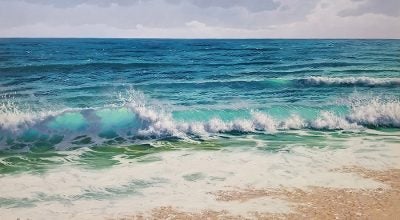ECU Project in Tyrrell County Completed and Ready for Discussion
Published 10:26 pm Wednesday, March 11, 2015
-from Press Release
In 2014, Dr. Christine Avenarius, Associate Professor of Anthropology at East Carolina University and a team of graduate students visited Tyrrell County from May 20 to August 20 for a project entitled “Restarting the Dialogue About Coastal Management Policies: Understanding Perceptions of Environmental Change Among Inner Banks Residents of Tyrrell, Hyde and Eastern Washington Counties.”
Below is a press release describing the conclusion of the project.
Last year a group of students from East Carolina University spent their summer months in Columbia. They were part of a community engagement project funded by the Z. Smith Reynolds Foundation and designed by Dr. Christine Avenarius, an associate professor for anthropology at East Carolina University. The project goal was to give local residents a voice by collecting their observations about recent changes in the natural environment, their suggestions for best practices for water management of the surrounding sounds, and their recommendations for ensuring the long term health of the local economy. The group had conducted a similar project the year before in Dare County.
In 2014 Dr. Avenarius and her team of six students, Emily Ayscue, Stefanie Benjamin, Whitney Bronson, Max Cameron, Tom Garcia, and Jessica Handloff, spent their first month attending community events and fellowship meetings at many churches and visited with the local chapters of the Lions Club, Rotary Club, and American Legion. They introduced themselves and engaged in informal conversations to learn what mattered to local folks when it comes to their natural and economic environment. Subsequently they turned what they learned into a set of questions for systematic conversations that often lasted a full hour. In Tyrrell County they spoke with 85 locals from all age groups and ethnicities. They also interviewed 45 residents in adjacent Hyde County and 26 people the Creswell and Roper areas of eastern Washington County.
After the summer the students embarked on new adventures. All but two of them had already planned to attend other universities than ECU to further their graduate studies. In the meantime Dr. Avenarius read through the many pages of text that the conversations had produced and analyzed it for reoccurring content, ordering similar opinions together. She also reviewed how differences and similarities in observations and attitudes may or may not be related to similar gender, age, ethnicity, or economics among participants.
Now she is ready to share the outcomes of this project and check on opportunities for bridging differences. The findings cover a range of topics, including opinions about economic incentives for each county (such as widening Hwy 64 to Manteo, building a golf course, accommodations for visitors, and tax breaks), evaluation of medical services, observations of higher water levels and salt water inundation, discussions of best practices for drainage maintenance, and discussions of advantages and disadvantages of wetland restoration.
For example, a typical statement in more or less the same words that the team collected from 40 percent of the residents of Tyrrell County over 40 years of age is: “I see pine trees dying from salt water, but the cypress can handle the saltwater.” Another statement that they heard from about 30 percent of predominately male residents of Tyrrell and Hyde County of all ages goes like this: “It’s not so much about drainage as it is about keeping the salt water out. On farmland, ditches take care of it, but it can’t drain because the tide is so high.” Yet another fairly often encountered testimonial made by about 40 percent of participants in all counties and among all age groups is: “I haven’t noticed anything about higher water levels. We have an erosion problem more than anything.”
Dr. Avenarius welcomes invitations from local community groups for presentations to share detailed findings at no cost to them. If your organization would like her to visit, please contact her at avenariusc@ecu.edu or call 252 328 9446. She also plans to reach out to community groups herself and ask about interests in a visit during the months of April or May.





